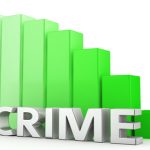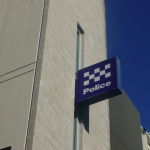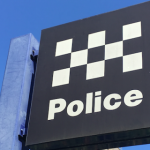Sydney Suburbs Where Reports of Sexual Assault Are on the Rise

Despite crime rates in New South Wales being at forty-year lows, a new report suggests that reports of sexual offences have risen by as much as forty percent in some parts of Sydney.
In its latest quarterly update, the Bureau of Crime Statistics and Research (BOCSAR) found that reporting of sexual assaults, including aggravated sexual assaults, indecent assaults and other sexual offences has risen steeply in the Inner South West, Baulkham Hills, Hawkesbury and Sydney City areas.
The report found that:
“Despite the falls in crime just listed, some parts of the Greater Sydney Statistical Area exhibited upward trends in some categories of crime. The most noteworthy of these were increases in:
- “Sexual assault in the Inner South West (up 37.8%), Baulkham Hills and Hawkesbury (up 43.3%) and Ryde (up 42.2%);
- “Indecent assault, act of indecency and other sexual offences in Sydney City and Inner South (up 30.6%) and Ryde (up 46.6%);”
Across the state, three of the ten categories of offences analysed by BOCSAR were found to have recorded higher reporting rates in 2017 than in 1990; comprising sexual assault (172% higher), other sexual offences (118% higher) and assault (59% higher).
However, BOCSAR explained that the trend is “is partly due to an increase in reporting of historical child sex offences (reported by the victim as an adult) and partly due to an increase in reports of recently occurred child sex offences.”
Government strategy
The report has triggered calls for the Berejiklian government to release the long awaited NSW Sexual Assault Strategy, which many believe is long overdue.
The purpose of the strategy is to provide a framework for responding to and preventing sexual assault.
It is anticipated that the strategy will focus on six key areas: prevention, education, supporting complainants, holding perpetrators to account, responding to children and young people who have engaged in harmful sexual conduct towards others, and improving the system as a whole.
In May last year, the Minister for the Prevention of Sexual Assault, Pru Goward, told state parliament that “the NSW Sexual Assault Strategy would be released later this year [2017]”.
It later said the strategy would be delayed until “after the NSW Government has considered the final recommendations from The Royal Commission into Institutional Responses to Child Sexual Abuse”.
Opposition response
The state opposition says the recent BOCSAR report highlights the unacceptability of the delay. According to the Shadow Minister for the Prevention of Sexual Assault, Jenny Aitchison:
“Any Government has a fundamental duty to keep its community safe from sexual assault. The Berejiklian Government has failed to deliver a sexual assault strategy in over two years”.
“The Berejiklian Government has its head in the sand when it comes to sexual assault because they are incapable of addressing the problem. They need to properly invest in the NSW police force to prevent any further increases in sexual assault.”
Social trends
However, the government fended off the criticism by pointing out that the report highlighted the fact that the increase in reporting does not correspond with an increase in offending, but rather a rise in complaints triggered by a growing social acceptance that sexual assaults and other inappropriate sexualised conduct should be reported.
“We have found that – as occurs in the equally heinous crime of domestic violence – victims have more confidence in reporting the crime, which contributes to the increase” said NSW Minister for Police, Troy Grant.
“We need to continue to work hard, but it is encouraging that, like victims of domestic violence, victims of sexual assault have a growing confidence in agencies… [and] are getting better support and have the confidence to report the crime so those mongrel offenders can be held to account in the courts.”
The new statistics come in the wake of a survey by the Australian Human Rights Commission which found that women are four times more likely to be sexually assaulted than men in university residences, and that post-graduate students are more likely to be harassed or assaulted by a staff member.
The NSW Sexual Assault Strategy is expected to be released later this year.
For more information or to talk about a sexual assault, contact NSW Rape Crisis or phone 1800 424 017







